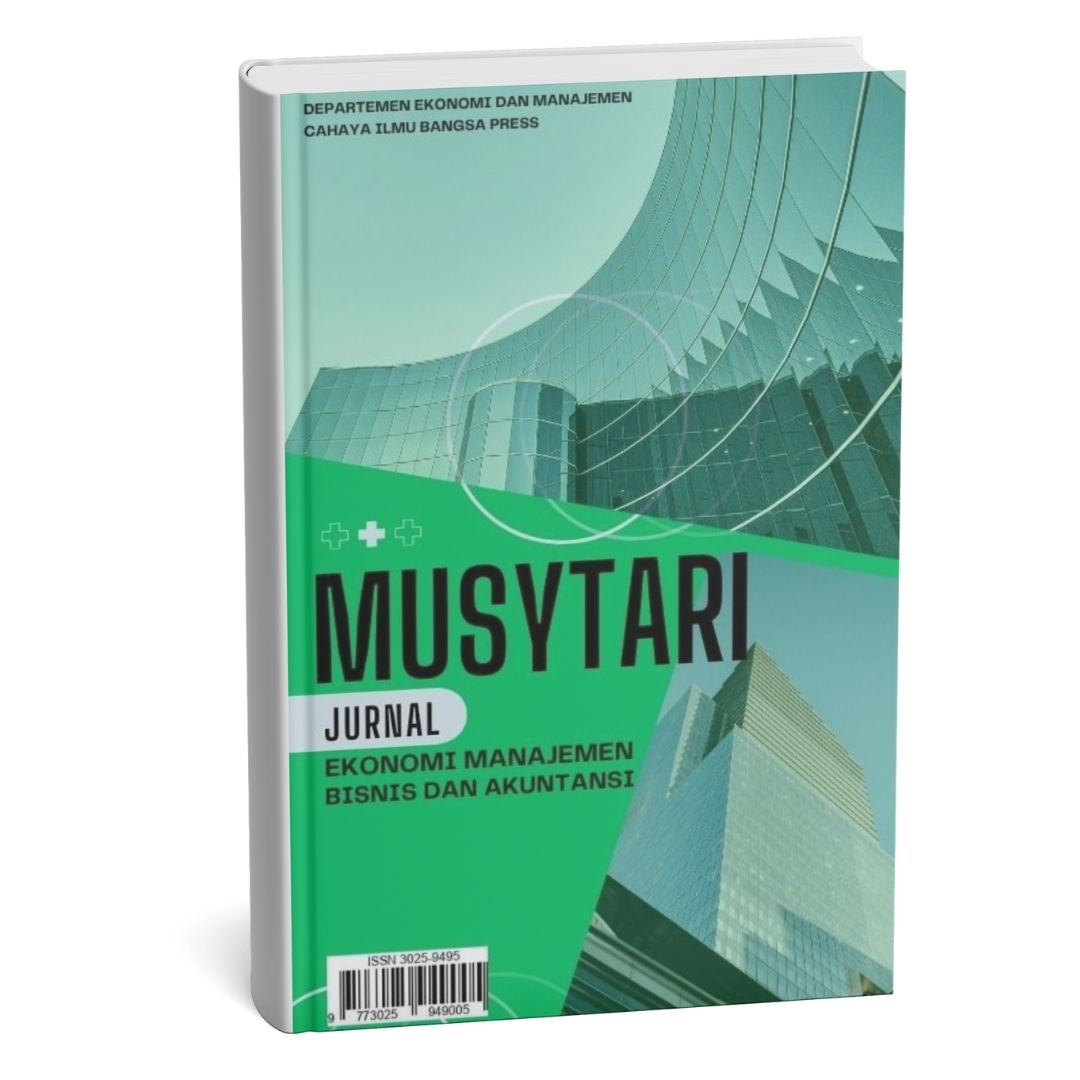Published 2025-07-08
Keywords
- Era digital,
- Gen Z,
- kompetensi kerja,
- work competition,
- Digital Era
- Generation Z ...More
How to Cite
Abstract
Penelitian ini bertujuan untuk mengidentifikasi dan menganalisis secara sistematis berbagai literatur yang relevan mengenai kompetensi kerja yang dibutuhkan oleh Generasi Z dalam menghadapi tantangan digitalisasi. Penelitian ini menggunakan pendekatan Systematic Literature Review (SLR) dengan metode pengumpulan data berupa penelusuran artikel ilmiah dari jurnal bereputasi nasional dan internasional yang diterbitkan dalam tujuh tahun terakhir. Sumber data yang dianalisis mencakup artikel, buku, dan laporan penelitian yang relevan dengan tema digitalisasi, kompetensi kerja, dan generasi Z. Metode analisis data dilakukan secara tematik dengan menyusun temuan-temuan literatur berdasarkan sub-topik yang telah ditentukan. Hasil kajian menunjukkan bahwa Gen Z memiliki potensi besar dalam penguasaan teknologi digital, namun masih menghadapi hambatan dalam kompetensi lunak seperti komunikasi, manajemen emosi, dan berpikir kritis. Penelitian ini menyimpulkan bahwa pengembangan kompetensi Gen Z harus dilakukan secara menyeluruh melalui strategi pendidikan dan pelatihan khusus. Adapun solusi utama dari masalah kompetensi kerja adalah menyiapkan Gen Z dengan empat bekal utama, yaitu pendidikan berbasis 4C (creative thinking, critical thinking, communication, collaboration) yang menjadi pondasi kompetensi kerja di era digital.
This study aims to systematically identify and analyze various relevant literature regarding the work competencies required by Generation Z in responding to the challenges of digitalization. The main focus of this research is to examine how the characteristics of Gen Z influence their readiness in the dynamic digital work environment and to determine which competencies are essential in the era of the Industrial Revolution 4.0 and Society 5.0. This study applies a Systematic Literature Review (SLR) approach, with data collected from scientific articles published in reputable national and international journals within the last five years. The data sources analyzed include articles, books, and research reports related to digitalization, job competencies, and Generation Z. The data were analyzed thematically by organizing findings based on predetermined subtopics. The review shows that Gen Z has strong potential in mastering digital technology, yet still faces challenges in soft competencies such as communication, emotional management, and critical thinking. This study concludes that Gen Z’s competency development must be approached integrative education and training strategies. The main solution to address the issue of job competency is to equip Gen Z with four essential foundations: 4C-based education—creative thinking, critical thinking, communication, and collaboration—which serves as the core of workplace skills in the digital era.
References
- Aprilina, R., & Martdianty, F. (2023). The Role of Hybrid-Working in Improving Employees’ Satisfaction, Perceived Productivity, and Organizations’ Capabilities. Jurnal Manajemen Teori Dan Terapan | Journal of Theory and Applied Management, 16(2), 206–222. https://doi.org/10.20473/jmtt.v16i2.45632
- Arnolus Juantri E. Oktavianus, Lamhot Naibaho, & Djoys Anneke Rantung. (2023). Pemanfaatan Artificial Intelligence pada Pembelajaran dan Asesmen di Era Digitalisasi. Jurnal Kridatama Sains Dan Teknologi, 5(2), 473–486.
- Fery Riyanto, Hardani Widhiastuti, & Rusmalia Dewi. (2023). Keterampilan Apa Yang Siap Digunakan Gen Z Saat Bekerja Di Era Industri 4.0: Bukti Di Pendidikan Tinggi Indonesia. Journal of Applied Management Studies, 5(1), 117–129. https://doi.org/10.51713/jamms.v5i1.111
- Fitri, F. F., Aiman, R. M. P., Angelica, C. N. R., Putri, N. T. A., & Saraswati, K. D. H. (2022). Career Adaptability: Studi Deskriptif pada Karyawan Gen Z. Journal for Nurses in Professional Development, 38(3), 145–150. https://doi.org/10.1097/nnd.0000000000000752
- Hardian, V., & Eric Hermawan. (2022). Gaya Kepemimpinan Transformatif Untuk Gen Z. KENDALI: Economics and Social Humanities, 1(1), 32–38. https://doi.org/10.58738/kendali.v1i1.15
- Ismail, D. H., & Nugroho, J. (2022). Kompetensi Kerja Gen Z di Era Revolusi Industri 4.0 dan Society 5.0. JIIP - Jurnal Ilmiah Ilmu Pendidikan, 5(4), 1300–1307. https://doi.org/10.54371/jiip.v5i4.566
- Kisri Endang, Nayla Sofiatun Nadifa, & Dien Noviany Rahmatika. (2024). Systematic Literatur Review (SLR): Pengaruh Determinan Kompetensi, Financial Reward dan Pertimbangan Pasar Kerja terhadap Minat Gen Z Berkarir Dibidang Perpajakan. Profit: Jurnal Manajemen, Bisnis Dan Akuntansi, 3(3), 144–158. https://doi.org/10.58192/profit.v3i3.2300
- Kurniadi, S., Mulyana, A., & Komaladewi, R. (2024). The Influence of FOMO Leading to Purchase Intention. Journal of Innovation in Management, Accounting and Business, 3(2), 71–83. https://doi.org/10.56916/jimab.v3i2.853
- Kusuma, F. K. (2021). Implementasi Manajemen Sumber Daya Manusia (MSDM) Berbasis Kompetensi di Era Digital. E-Journal Binawakya, 15(10), 5097–5104.
- Panggabean, N. C., & Brahmana, K. M. B. (2021). Pengaruh Kecenderungan Fear of Missing Out (FoMO) pada Generasi Milenial (gen z) di Indonesia. Southeast Asian Journal of Technology and Science, 2(2), 104–108.
- Raslie, H., & Ting, S. H. (2021). Gen Y and Gen Z Communication Style. Estudios de Economia Aplicada, 39(1), 1–18. https://doi.org/10.25115/eea.v39i1.4268
- Umamy, S., Laili, J., & Saibah, S. (2024). Peran Motivasi dalam Hubungan Kompetensi dan Keputusan Karir Gen Z. Jurnal Ecodemica : Jurnal Ekonomi Manajemen Dan Bisnis, 8(1), 18–26. https://doi.org/10.31294/eco.v8i1.21967

